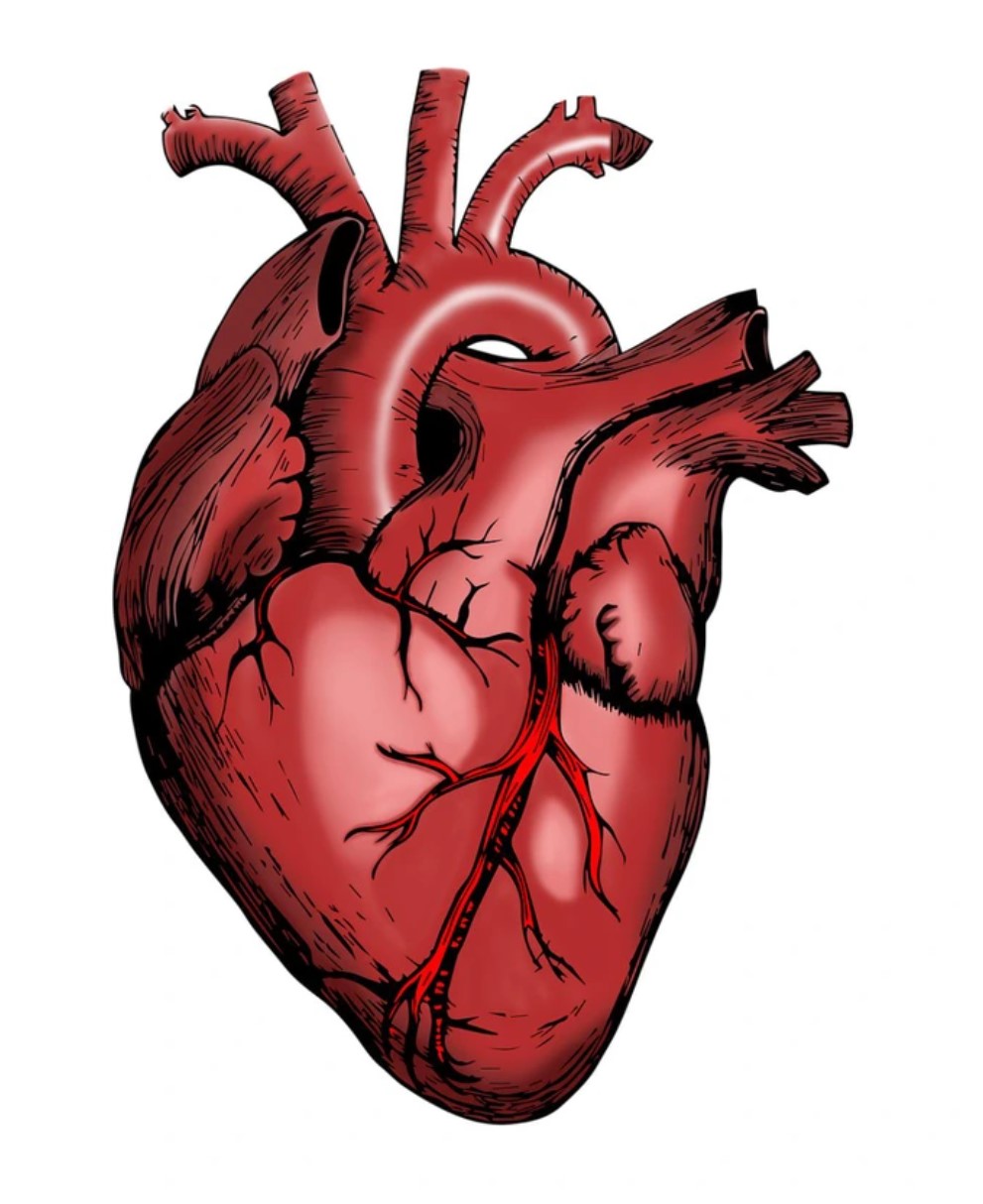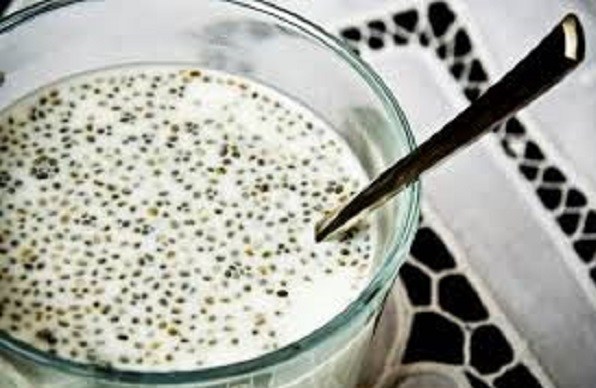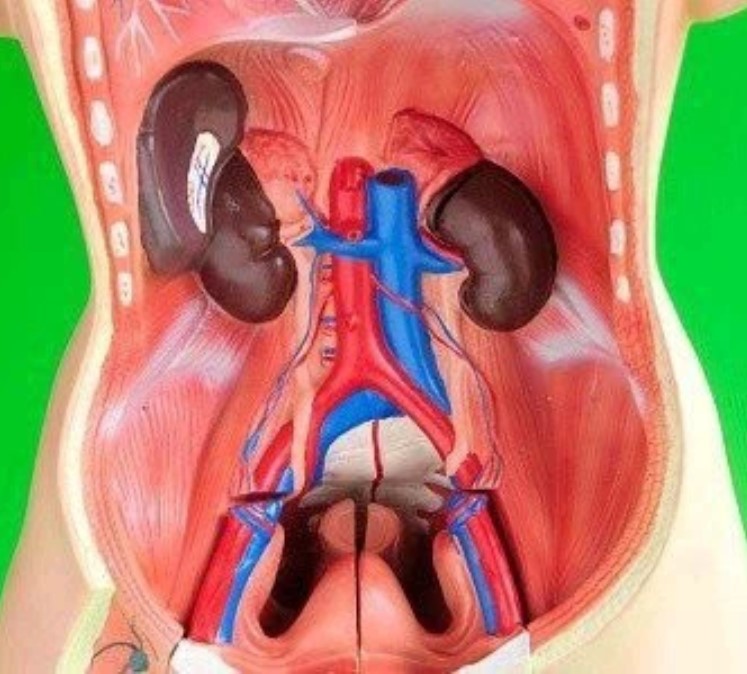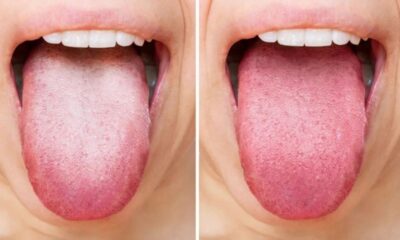Heartburn is a common condition that affects millions of people worldwide. It is characterized by a burning sensation in the chest, typically after eating, and can be accompanied by a sour taste in the mouth, indigestion, and discomfort. For many, heartburn is a recurring problem that can disrupt daily life and cause significant distress.
While over-the-counter medications provide temporary relief, they often don’t address the root cause of the problem. This article explores natural methods that can help you cure heartburn forever, offering a long-term solution without relying on medications…Click Here To Continue Reading>> …Click Here To Continue Reading>>
Medical Disclaimer: The information provided in this article is for educational purposes only and is not intended to replace professional medical advice, diagnosis, or treatment. Always seek the advice of your physician or another qualified healthcare provider with any questions you may have regarding a medical condition. Do not disregard professional medical advice or delay in seeking it because of something you have read in this article.
Understanding Heartburn: What Causes It?
Before diving into natural remedies, it’s important to understand what causes heartburn. Heartburn occurs when stomach acid flows back into the esophagus, the tube that connects your throat to your stomach. This backward flow of acid, known as acid reflux, can irritate the lining of the esophagus and cause the characteristic burning sensation.
Several factors can contribute to heartburn, including:
Diet: Certain foods and beverages can trigger heartburn, such as spicy foods, fatty foods, caffeine, alcohol, and chocolate.
Obesity: Excess weight can put pressure on the stomach, causing acid to push back into the esophagus.
Smoking: Smoking can weaken the lower esophageal sphincter (LES), a muscle that acts as a valve between the esophagus and the stomach, allowing acid to escape into the esophagus.
Pregnancy: Hormonal changes during pregnancy can relax the LES, leading to heartburn.
Hiatal Hernia: A condition where part of the stomach pushes up through the diaphragm, which can contribute to acid reflux.
Medications: Certain medications, such as aspirin, ibuprofen, and some blood pressure medications, can trigger heartburn.
Understanding the root cause of your heartburn is essential for finding a natural cure that works for you. By addressing the underlying factors, you can achieve long-term relief and potentially eliminate heartburn forever.
1. Dietary Changes: The Foundation of Natural Heartburn Relief
One of the most effective ways to cure heartburn naturally is by making dietary changes. Your diet plays a crucial role in managing acid reflux and heartburn, and by making the right choices, you can reduce or eliminate symptoms.
A. Identify and Avoid Trigger Foods
The first step in managing heartburn through diet is to identify and avoid foods that trigger your symptoms. Common trigger foods include:
Spicy Foods: Chili peppers, hot sauce, and other spicy foods can irritate the esophagus and trigger heartburn.
Fatty Foods: High-fat foods, such as fried foods, fatty cuts of meat, and full-fat dairy products, can slow digestion and increase the risk of acid reflux.
Caffeine: Coffee, tea, and other caffeinated beverages can relax the LES and exacerbate heartburn.
Alcohol: Alcohol can also relax the LES and irritate the esophagus, leading to heartburn.
Chocolate: Chocolate contains a compound called theobromine, which can relax the LES and trigger acid reflux.
Citrus Fruits: Oranges, lemons, and other citrus fruits are highly acidic and can worsen heartburn symptoms.
Tomatoes: Tomato-based foods, such as pasta sauce, ketchup, and salsa, are acidic and can trigger heartburn.
By keeping a food diary and tracking your symptoms, you can identify which foods are triggering your heartburn and make adjustments to your diet accordingly.
B. Incorporate Heartburn-Friendly Foods
While avoiding trigger foods is important, it’s equally important to incorporate heartburn-friendly foods that can help soothe and protect your digestive system. These include:
Ginger: Ginger has natural anti-inflammatory properties and can help soothe the stomach and reduce acid production. Try incorporating ginger into your diet by adding it to teas, smoothies, or meals.
Oatmeal: Oatmeal is a low-acid, high-fiber food that can help absorb stomach acid and reduce symptoms of heartburn.
Bananas: Bananas are low in acid and can help coat the lining of the esophagus, providing relief from heartburn.
Melons: Melons, such as cantaloupe and honeydew, are low in acid and can be a soothing option for those with heartburn.
Lean Proteins: Choose lean proteins, such as chicken, turkey, and fish, over fatty meats to reduce the risk of heartburn.
Green Vegetables: Vegetables like broccoli, spinach, and green beans are low in acid and can be a healthy addition to a heartburn-friendly diet.
Whole Grains: Whole grains, such as brown rice, quinoa, and whole wheat bread, are high in fiber and can help reduce acid reflux symptoms.
C. Eat Smaller, More Frequent Meals
Overeating can put pressure on the stomach and increase the likelihood of acid reflux. Instead of eating large meals, try eating smaller, more frequent meals throughout the day. This can help reduce the amount of acid your stomach produces and prevent the overproduction of acid that can lead to heartburn.
D. Avoid Eating Before Bedtime
Lying down after eating can increase the risk of acid reflux, as it allows stomach acid to flow more easily into the esophagus. To prevent this, avoid eating large meals or snacking within 2-3 hours before bedtime. If you do need a late-night snack, opt for something light and low in acid.
2. Lifestyle Changes: Supporting Long-Term Heartburn Relief
In addition to dietary changes, making certain lifestyle adjustments can help you achieve long-term relief from heartburn. These changes address some of the underlying causes of acid reflux and can help you maintain a healthy digestive system.
A. Maintain a Healthy Weight
Carrying excess weight, especially around the abdomen, can put pressure on the stomach and increase the risk of acid reflux. Losing weight through a combination of a healthy diet and regular exercise can help reduce this pressure and alleviate heartburn symptoms.
B. Quit Smoking
Smoking is a major risk factor for heartburn, as it can weaken the LES and increase acid production. Quitting smoking is one of the most effective ways to reduce the risk of acid reflux and improve overall health. If you need help quitting, consider seeking support from a healthcare provider, counselor, or smoking cessation program.
C. Elevate the Head of Your Bed
If you experience nighttime heartburn, elevating the head of your bed can help prevent acid from flowing back into the esophagus while you sleep. Aim to raise the head of your bed by 6-8 inches using bed risers or a wedge pillow. This slight incline can make a significant difference in reducing nighttime reflux.
D. Wear Loose-Fitting Clothing
Tight clothing, especially around the waist, can put pressure on the stomach and exacerbate heartburn. Opt for loose-fitting, comfortable clothing to reduce pressure and allow your digestive system to function more smoothly.
E. Practice Stress Management
Stress can contribute to acid reflux by increasing stomach acid production and causing the LES to function less effectively. Incorporating stress management techniques, such as deep breathing, meditation, yoga, or regular physical activity, can help reduce stress levels and improve digestive health. READ FULL STORY HERE>>>CLICK HERE TO CONTINUE READING>>>
3. Natural Remedies and Supplements for Heartburn Relief
In addition to dietary and lifestyle changes, there are several natural remedies and supplements that can help alleviate heartburn symptoms and promote long-term relief.
Although it may seem counterintuitive to consume something acidic for heartburn, apple cider vinegar (ACV) is a popular natural remedy for acid reflux. The theory behind ACV is that it helps balance the pH levels in the stomach and can improve digestion. To try this remedy, mix 1-2 tablespoons of raw, unfiltered apple cider vinegar with a glass of water and drink it before meals.
B. Aloe Vera Juice
Aloe vera is known for its soothing and anti-inflammatory properties, and aloe vera juice can help reduce irritation in the esophagus and stomach. Drinking a small amount of aloe vera juice before meals may help soothe heartburn symptoms and promote healing.
C. Baking Soda
Baking soda, or sodium bicarbonate, is a natural antacid that can help neutralize stomach acid and provide quick relief from heartburn. To use this remedy, mix 1/2 teaspoon of baking soda with a glass of water and drink it when you experience symptoms. However, be cautious with this remedy, as excessive use of baking soda can lead to side effects such as bloating and gas.
D. Slippery Elm
Slippery elm is an herbal remedy that has been used for centuries to treat various digestive issues, including heartburn. It works by forming a protective layer on the lining of the esophagus and stomach, reducing irritation and promoting healing. Slippery elm is available in various forms, including capsules, lozenges, and powders that can be mixed with water.
E. Licorice Root
Licorice root is another herbal remedy that can help soothe the digestive system and reduce heartburn symptoms. Deglycyrrhizinated licorice (DGL) is a form of licorice that has had the compound glycyrrhizin removed, making it safer for long-term use. DGL can help increase mucus production in the esophagus, providing a protective barrier against stomach acid.
F. Probiotics
Probiotics are beneficial bacteria that can support digestive health and help maintain a healthy balance of gut flora. Taking a high-quality probiotic supplement can help improve digestion, reduce inflammation, and prevent acid reflux. Probiotics can also be found in fermented foods such as yogurt, kefir, sauerkraut, and kimchi.
Chamomile tea is known for its calming properties and can help reduce stress, which is a common trigger for heartburn. Additionally, chamomile has anti-inflammatory effects that can soothe the digestive system. Drinking a cup of chamomile tea before bed may help prevent nighttime heartburn and promote restful sleep.
4. Healing the Esophagus: Repairing Damage from Chronic Heartburn
Chronic heartburn can lead to inflammation and damage to the esophagus, a condition known as esophagitis. If left untreated, esophagitis can lead to complications such as esophageal ulcers or strictures. In addition to addressing the root causes of heartburn, it’s important to focus on healing and repairing the esophagus to prevent further damage.
A. Follow a Soothing Diet
To promote healing, follow a diet that is gentle on the esophagus and stomach. Focus on nutrient-dense, low-acid foods that provide essential vitamins and minerals without causing irritation. Some examples include:
Bone Broth: Bone broth is rich in collagen and amino acids that can help repair the lining of the esophagus and promote healing.
Manuka Honey: Manuka honey has natural antibacterial and anti-inflammatory properties that can help soothe and heal the esophagus. Consider taking a spoonful of Manuka honey before meals or incorporating it into your diet.
Leafy Greens: Leafy greens such as spinach and kale are packed with nutrients that support healing and reduce inflammation.
Papaya: Papaya contains enzymes that aid in digestion and can help reduce the risk of acid reflux. Additionally, its natural anti-inflammatory properties can help soothe the esophagus.
B. Stay Hydrated
Drinking plenty of water is essential for healing the esophagus and maintaining overall digestive health. Staying hydrated helps dilute stomach acid and supports the body’s natural healing processes. Aim to drink at least eight glasses of water a day, and consider sipping on herbal teas or infused water for added benefits.
Digestive enzymes can help improve digestion and reduce the risk of acid reflux by breaking down food more efficiently. If you have difficulty digesting certain foods, consider taking a digestive enzyme supplement with meals to support your digestive system and prevent heartburn.
D. Avoid Irritants
To allow the esophagus to heal, it’s important to avoid irritants that can exacerbate inflammation and damage. In addition to avoiding trigger foods, limit or eliminate alcohol, tobacco, and caffeine, as these substances can delay healing and worsen symptoms.
E. Practice Mindful Eating
Mindful eating involves paying attention to the experience of eating, including the taste, texture, and smell of food, as well as your body’s hunger and fullness cues. Eating mindfully can help you eat more slowly, chew your food thoroughly, and prevent overeating—all of which can reduce the risk of acid reflux and support healing.
5. Preventing Recurrence: Maintaining Long-Term Heartburn Relief
Once you’ve achieved relief from heartburn, it’s important to take steps to prevent its recurrence and maintain long-term digestive health. By adopting healthy habits and making mindful choices, you can reduce the risk of heartburn returning and enjoy a life free from discomfort.
A. Stick to a Heartburn-Friendly Diet
Continue to follow a heartburn-friendly diet that includes plenty of whole foods, lean proteins, and low-acid fruits and vegetables. Avoid trigger foods and limit your intake of processed foods, sugar, and unhealthy fats. A balanced diet rich in nutrients will support your overall health and reduce the risk of acid reflux.
B. Manage Stress
Stress is a common trigger for heartburn, so it’s important to find effective ways to manage stress and maintain a sense of calm. Incorporate relaxation techniques such as deep breathing, meditation, yoga, or regular exercise into your daily routine. Prioritizing self-care and mental well-being will help you stay resilient and reduce the likelihood of stress-related heartburn.
C. Stay Active
Regular physical activity supports digestion and helps maintain a healthy weight, both of which are important for preventing heartburn. Aim to incorporate moderate exercise, such as walking, swimming, or cycling, into your routine at least 3-4 times a week. Avoid vigorous exercise immediately after eating, as this can increase the risk of acid reflux.
D. Monitor Portion Sizes
Overeating is a common trigger for heartburn, so it’s important to be mindful of portion sizes and avoid eating large meals. Instead, opt for smaller, more frequent meals throughout the day, and stop eating when you feel satisfied rather than full. Eating smaller portions can reduce the strain on your digestive system and help prevent acid reflux.
E. Stay Upright After Meals
To reduce the risk of acid reflux, stay upright for at least 2-3 hours after eating. Avoid lying down or reclining immediately after meals, as this can allow stomach acid to flow back into the esophagus. If you need to rest after a meal, consider sitting in a comfortable chair or taking a leisurely walk.
F. Continue to Avoid Triggers
As you continue on your journey to long-term heartburn relief, be vigilant about avoiding triggers that can cause symptoms to return. Whether it’s certain foods, beverages, or lifestyle habits, staying mindful of what triggers your heartburn will help you maintain your progress and prevent recurrence.
Conclusion: Achieving Lasting Heartburn Relief Naturally
Curing heartburn naturally and permanently requires a comprehensive approach that addresses the root causes of acid reflux and promotes overall digestive health. By making strategic dietary changes, adopting healthy lifestyle habits, incorporating natural remedies, and focusing on healing the esophagus, you can achieve lasting relief from heartburn without relying on medications.
Remember that everyone’s body is different, and what works for one person may not work for another. It’s important to listen to your body, experiment with different strategies, and consult with a healthcare provider if you have any concerns.
By taking proactive steps to manage heartburn naturally, you can enjoy a life free from the discomfort and frustration of acid reflux. Embrace a holistic approach to digestive health, and you’ll be on your way to curing heartburn forever.
Medical Disclaimer: The information provided in this article is for educational purposes only and is not intended to replace professional medical advice, diagnosis, or treatment. Always seek the advice of your physician or another qualified healthcare provider with any questions you may have regarding a medical condition. Do not disregard professional medical advice or delay in seeking it because of something you have read in this article.




















